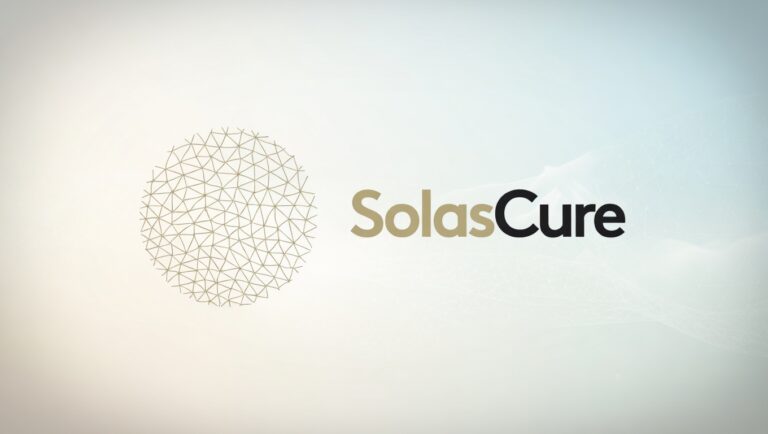
Sensorion Completes Enrollment of First Cohort in Audiogene Phase 1/2 Trial
Sensorion (FR0012596468 – ALSEN), a pioneering clinical-stage biotechnology company focused on developing innovative therapies for hearing loss disorders, has successfully completed patient enrollment for the first cohort in its Audiogene Phase 1/2 gene therapy clinical trial.
The first cohort, consisting of three patients, was enrolled as planned, with the final patient receiving the SENS-501 gene therapy injection in December 2024. The surgical procedure for all patients in this cohort was well tolerated. The intra-cochlear delivery of the gene therapy was smooth, and no serious adverse events were reported. The Audiogene trial is the first of its kind, targeting a unique, homogeneous group of infants and toddlers aged 6 to 31 months, who have not undergone cochlear implant procedures. The goal of this trial is to evaluate the ability of the SENS-501 gene therapy product to restore hearing and enable these young children to develop normal speech.

Nawal Ouzren, CEO of Sensorion, expressed his satisfaction with the trial’s progress, stating, “I am very pleased with the advancements we’ve made in our Phase 1/2 gene therapy trial. Completing the enrollment of the first cohort, with the third and final patient receiving treatment less than a year after the clinical trial application was authorized, is a significant milestone for Sensorion. The surgery was successful, and no serious adverse events were reported. We are excited to present additional data in early 2025 during a Key Opinion Leader (KOL) event with leading experts in the field.”
About the Audiogene Trial
The Audiogene trial aims to evaluate the safety, tolerability, and efficacy of intra-cochlear injection of SENS-501 in treating OTOF gene-mediated hearing loss in infants and toddlers aged 6 to 31 months. This trial is particularly focused on this early age group, as brain plasticity is most optimal for language development, increasing the chances of these children acquiring normal speech. The study is divided into two cohorts, each with varying doses, followed by an expansion cohort at the selected dose.
The primary endpoint for the first part of the trial is safety, while the second part will assess efficacy using auditory brainstem response (ABR) as the primary measure. The trial will also evaluate the safety and ease of use of the delivery system developed by Sensorion.
About SENS-501
SENS-501 (OTOF-GT) is an innovative gene therapy developed by Sensorion to treat a specific form of congenital deafness caused by mutations in the OTOF gene, which is vital for transmitting auditory signals between the hair cells of the inner ear and the auditory nerve. Mutations in this gene result in severe to profound hearing loss at birth.
SENS-501 works by introducing a functional copy of the OTOF gene directly into the hair cells of the inner ear using a viral vector (AAV). This therapy aims to restore the process of converting sound into electrical signals, allowing patients to regain hearing. Currently in clinical research, SENS-501 offers significant hope to families affected by this rare genetic form of deafness and marks a breakthrough in hearing restoration.
SENS-501 is developed as part of the RHU AUDINNOVE consortium, which includes Sensorion, the Necker Enfants Malades Hospital, the Institut Pasteur, and the Fondation pour l’Audition. The project has received partial funding from the French National Research Agency’s “Investing for the Future” program (ref: ANR-18-RHUS-0007).
About Sensorion
Sensorion is a clinical-stage biotechnology company that specializes in developing novel therapies to restore, treat, and prevent hearing loss disorders. Sensorion has developed a unique R&D platform that allows the company to understand the pathophysiology and etiology of inner ear diseases, helping to identify the most effective therapeutic targets and mechanisms.
In addition to SENS-501, Sensorion is developing another gene therapy, GJB2-GT, to address hearing loss caused by mutations in the GJB2 gene, affecting both children and adults. The company is also working on identifying biomarkers to improve the diagnosis of hearing loss disorders, further strengthening Sensorion’s commitment to transforming the treatment landscape for these conditions.
Sensorion’s clinical-stage portfolio also includes small molecule programs. Notably, SENS-401 is being evaluated in Phase 2 clinical trials to treat Cisplatin-Induced Ototoxicity (CIO) and Sudden Sensorineural Hearing Loss (SSNHL). In partnership with Cochlear Limited, Sensorion is also studying SENS-401 for patients undergoing cochlear implantation.
With a strong commitment to advancing hearing loss therapies, Sensorion continues to push the boundaries of scientific innovation in the field of hearing restoration. By developing cutting-edge treatments, Sensorion is working to address a significant unmet medical need globally and improve the quality of life for patients affected by hearing loss disorders. Sensorion’s continued dedication to research and development promises a brighter future for those affected by hearing-related conditions.
Through these efforts, Sensorion is driving positive change in the lives of patients and their families, offering hope for those impacted by hearing loss disorders and ensuring that groundbreaking treatments are brought to market to benefit those in need.
Please find the related post




